1776 (1972)
“I have come to the conclusion that one useless man is called a disgrace; that two are called a law firm; and that three or more become a Congress!”
|
Synopsis: |
|
Genres, Themes, Actors, and Directors:
Review: … how dull and trite most of the Congress’s work generally felt: … and how contentious key issues (i.e., slavery) were to moving forward as a collective: Because we already know the eventual outcome of this momentous event, the storyline necessarily focuses on the personalities behind the scenes, highlighting (indeed, over-emphasizing) their key qualities for dramatic impact — so, we see Adams berating himself time and again for being so “obnoxious and disliked” (not actually true in real life): … Jefferson’s driving lust for his wife (Blythe Danner): … and Ben Franklin’s irrepressibly scampish nature (Da Silva is a highlight of the movie): Unfortunately, the songs aren’t all that thrilling, though a few will stick in your head (for better or for worse) long after they’re done. Notable Performances, Qualities, and Moments: Must See? Links: |
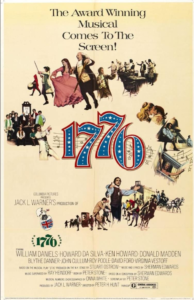
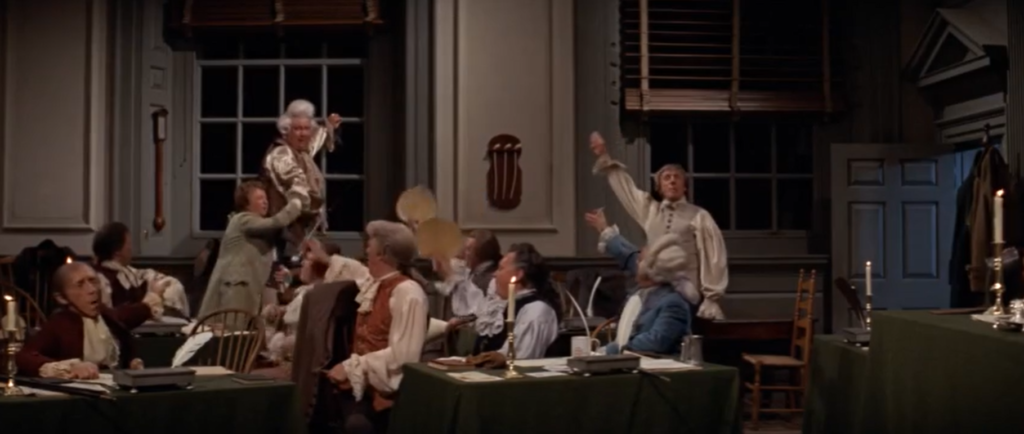
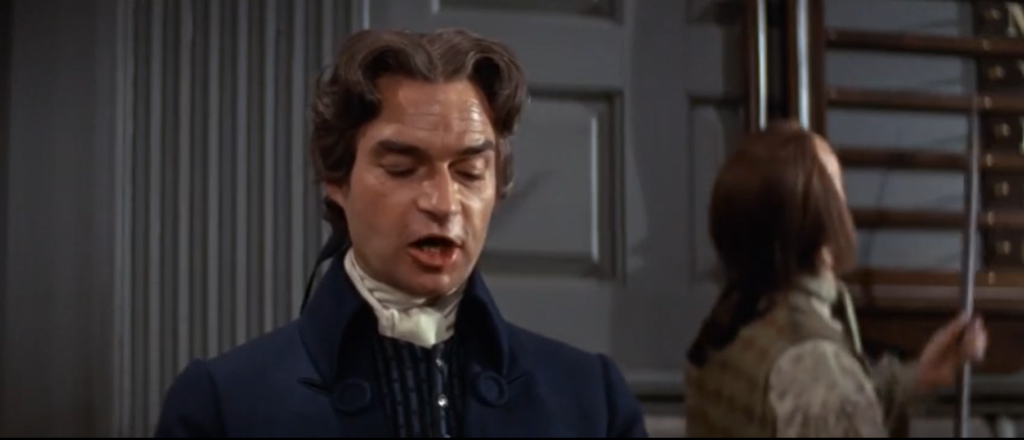
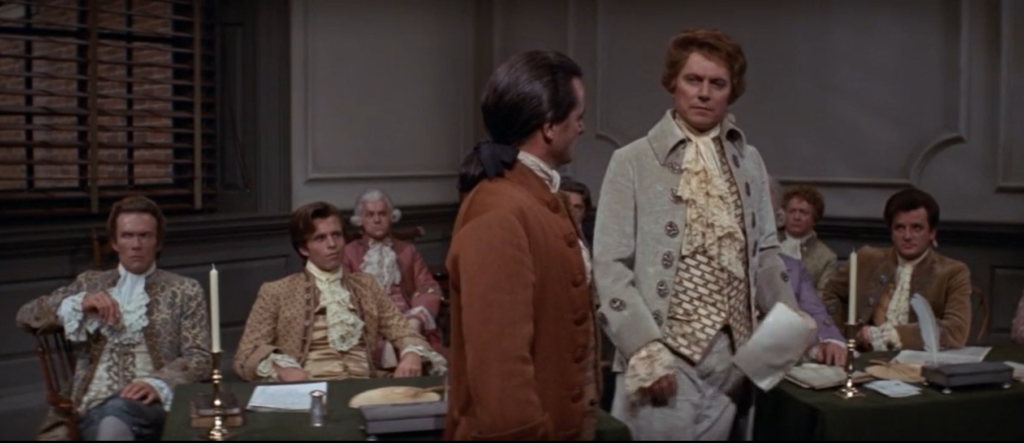
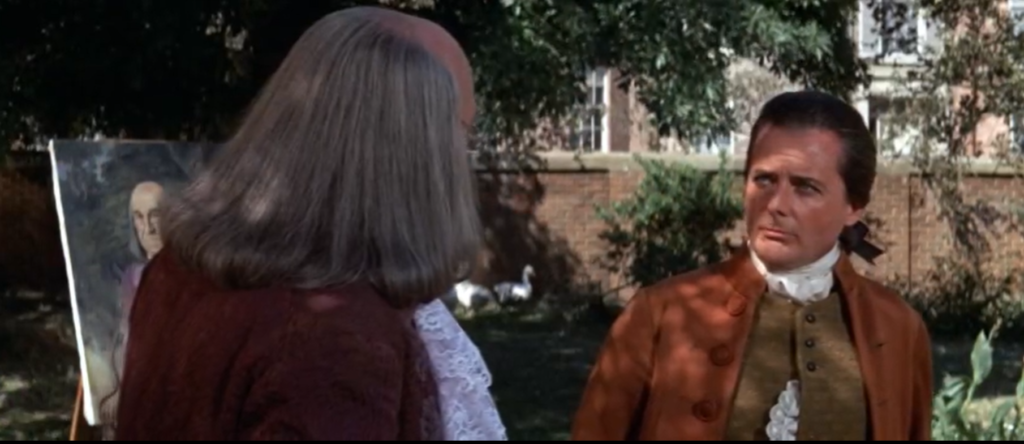
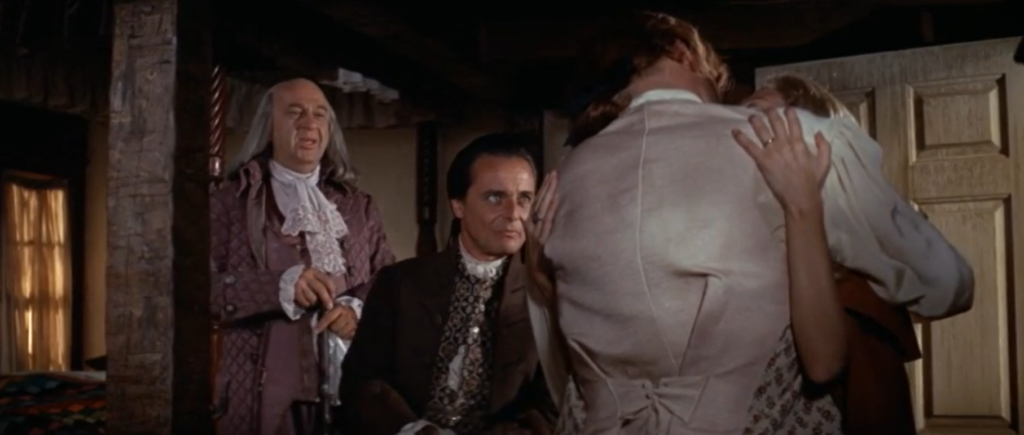
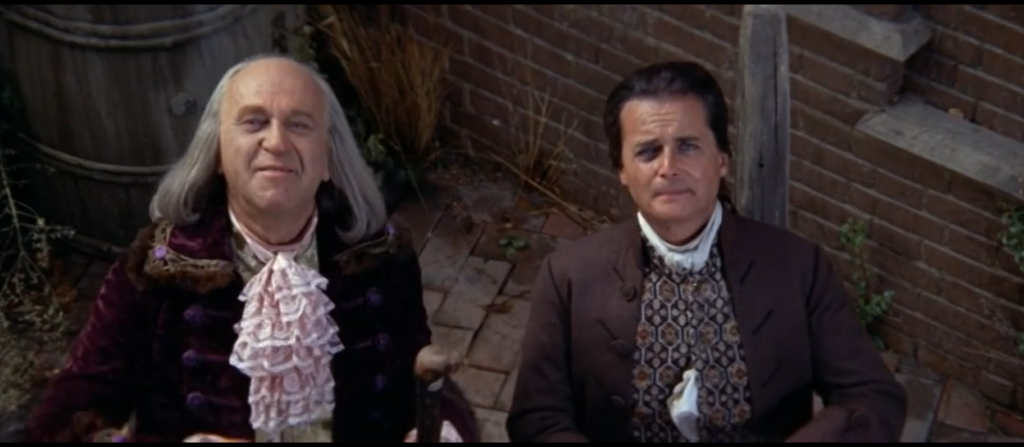
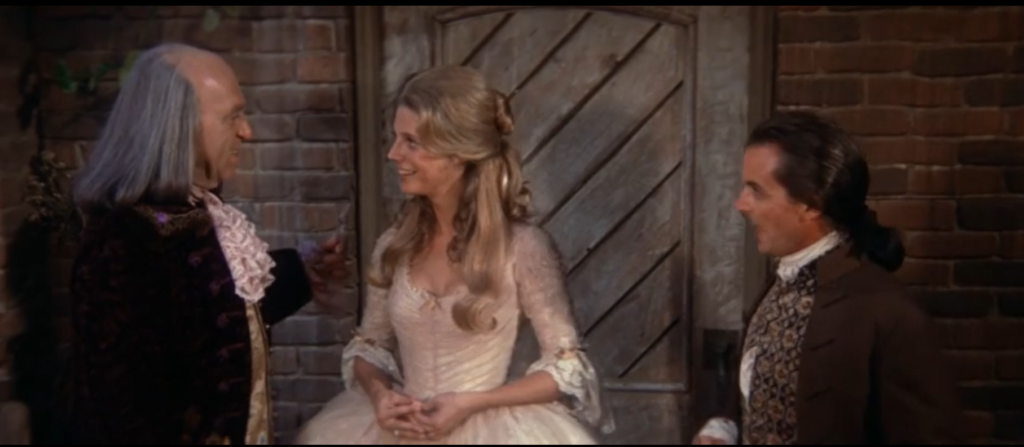
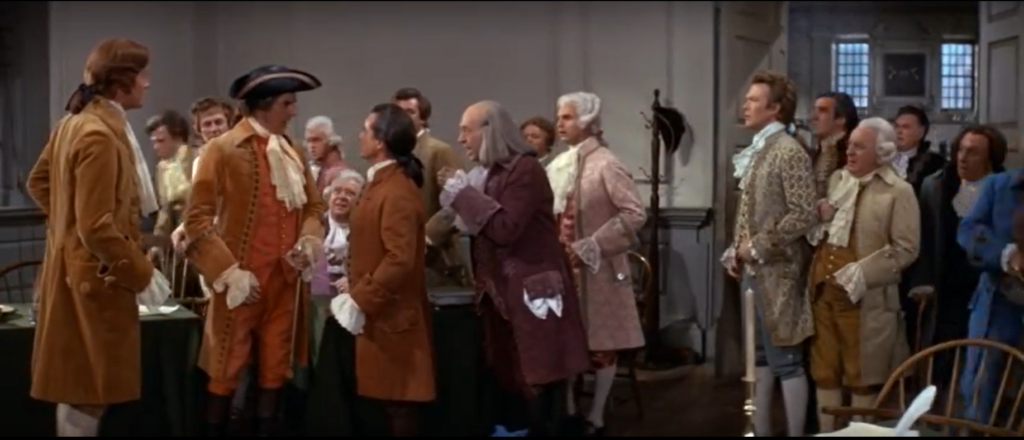
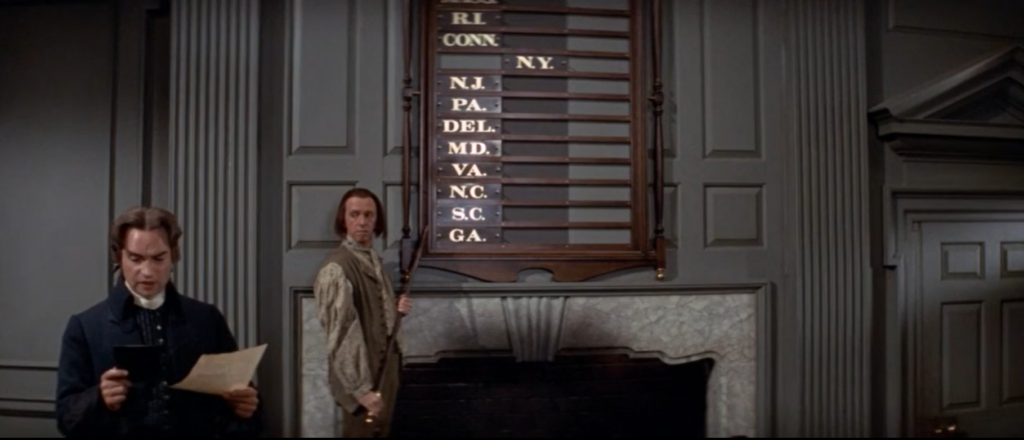
One thought on “1776 (1972)”
A once-must, for its place in cinema history. As per my post (today) in ‘Film Junkie’ (fb):
“This is a revolution, damnit! We’re going to have to offend *somebody*!”
‘1776’ (1972): This is only the second time I’ve watched this film. What struck me during this rewatch was the amount of risk involved in bringing such a musical to the Broadway stage. After all, how many people would want to see a musicalization of the signing of the Declaration of Independence?
Quite a lot of people, as it turns out. ‘1776’ ran for over 1,200 performances when it opened in 1969. It won a TONY for Best Musical. It was revived on Bway in 1997 (333 perfs.). Prior to the pandemic, an all-female-cast revival was planned; presumably that plan still holds.
Lin-Manuel Miranda, the creator of ‘Hamilton’, has gushed re: the degree of inspiration he took from ‘1776’:
“‘1776’ created such an iconic, indelible image of [John] Adams that we just know who that is now. It’s also, I think, one of the best books—if not the best—ever written for musical theater, in that you long to see them talk to each other. Which almost never happens in a musical. Most musicals, you’re waiting for the next song to start. That book is so smart, and so engaging.”
A very smart decision was made in the transfer from stage to screen: many of the original cast members stayed on-board, as did the original director (Peter H. Hunt) and writer (Peter Stone).
But how does the film hold up, not only as a musical but as a piece of history? Wikipedia tells us: [According to The Columbia Companion to American History on Film, historical “inaccuracies pervade ‘1776’, though few are very troubling.”] So much for the facts.
As a musical, ‘1776’ largely embraces what now seems an old, traditional style – and that’s a bit of a drawback. (It took ‘Hair’ to really challenge that style.) But in its second half (the better – more compelling – half of the film, I think), several songs are rather powerful:
‘Cool, Cool Considerate Men’: A song Nixon hated – since it put [R]s in a bad but accurate light (all the more reason to love the song).
‘Momma, Look Sharp’: One of the most heartbreaking songs about war (and reason alone, I think, to see the film).
‘Molasses to Rum’: a potent cry re: finger-pointing over the slave trade.
‘Is Anybody There?’: A song that admirably sums up the plot.
I always find it sad when I think about the (probably) high percentage of people who are indifferent about politics and would rather think / talk about almost anything else. That’s why I think ‘1776’ remains a film of significant worth. You have to put yourself in a particular frame of mind while absorbing it, but I feel it’s a film that rewards in surprising ways.